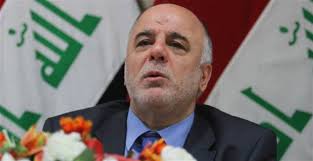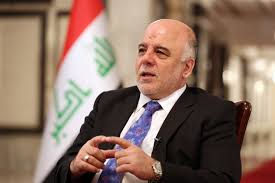Iraqi Prime Minister Haider al-Abadi called Sunday for sweeping reforms, including abolishing the post of his rival Nuri al-Maliki, in response to weeks of demonstrations against corruption and poor services.
 Iraqi Prime Minister Haider al-Abadi called Sunday for sweeping reforms, including abolishing the current post of his predecessor Nuri al-Maliki, in response to weeks of demonstrations against corruption and poor services.
Iraqi Prime Minister Haider al-Abadi called Sunday for sweeping reforms, including abolishing the current post of his predecessor Nuri al-Maliki, in response to weeks of demonstrations against corruption and poor services.
The proposed reforms, at least some of which require the approval of the cabinet and parliament, followed a call for tougher measures from Iraq's top Shiite cleric, Grand Ayatollah Sayyed Ali al-Sistani.
One of the most drastic of the proposals outlined in an online statement was the call for elimination of the posts of vice president and deputy prime minister "immediately".
But the changes would apparently require the constitution to be amended, meaning that rapid action is unlikely.
The three vice presidential posts, which come with more privileges than responsibilities, are held by former top officials - Maliki, ex-parliament speaker Osama al-Nujaifi and former premier Iyad Allawi.
Maliki said in a statement the night before Abadi publicly outlined his plan that he supported the reform drive, indicating that the proposed changes may have been made as part of a deal that he endorsed.
Abadi also called for a major overhaul of the way senior officials are selected, saying that all "party and sectarian quotas" should be abolished, and the candidates chosen by a committee appointed by the premier.
He also said there should be a "comprehensive and immediate reduction" in the number of guards for all officials.
This has long been a problem, with some officials having massive personal protection units, and others hiring less than the allotted number and pocketing the remainder of the allowance.
And he called for an end to "special provisions" for senior officials, both current and retired.
Baghdad and other cities have seen weeks of protests against the poor quality of services, especially power outages that leave Iraqis with only a few hours of government-supplied electricity per day as temperatures top 50 degrees Celsius (120 degrees Fahrenheit).
The demonstrators have blamed the services crisis on corruption and incompetence across the political class.
People have protested over services and corruption before, but the demonstrations failed to bring about significant change.
